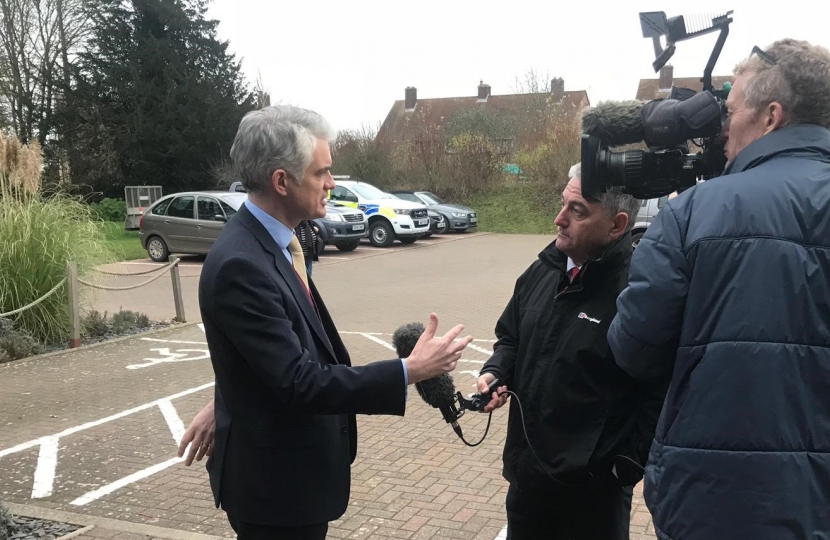
Earlier this week I issued a statement in relation to the recent reports surrounding the Prime Minister’s senior adviser, Dominic Cummings. I have now updated and amended that statement following the pronouncements on the case from Durham Police, issued on 28th May.
In my previous statement I acknowledged the very strong feelings that the episode had aroused in many constituents, not least those who had stayed at home throughout lockdown hitherto, in many cases having to make difficult and even unbearable sacrifices to do so – such as missing the funerals of loved ones. I can understand why those in this position, in particular, would have been aggrieved to hear that Mr Cummings had not stayed at home, being such a senior adviser to the Government making the very rules governing lockdown.
However, I also said that there was recognition that these rules had exceptions, particularly where the wellbeing of a child was concerned. I pointed out that in that final week of March when we legislated for lockdown – and when Mr Cummings finished the week driving for Durham – Westminster was a mini-epicentre of Coronavirus infection and I remember having the same concerns at the time as to what would happen to my children if I returned home, and both my wife and I became poorly. But whereas I was able to return to my comparatively safe home in Suffolk, for some time now Mr Cummings has received threats online, and at times, abuse from members of the public outside his house in London. In those circumstances, given he says he had no childcare to hand, I concluded it was reasonable from the point of view of the best interests of his child to go to a property in Durham on his father’s farm that was isolated and removed from such threats, yet near to familial childcare if the worst happened. I note the statement by the police on this point: “Durham Constabulary does not consider that by locating himself at his father’s premises, Mr Cummings committed an offence contrary to regulation 6 of the Health Protection (Coronavirus, Restrictions) (England) Regulations 2020”.
Notwithstanding the above, I did also say in my previous statement: “Of course, the whole affair has raised a number of other questions that will be pored over for days to come”. One such question raised by a number of concerned constituents surrounds Mr Cummings’ visit to Barnard Castle whilst he was in Durham. On this point, the police statement is as follows: “Durham Constabulary have examined the circumstances surrounding the journey to Barnard Castle (including ANPR, witness evidence and a review of Mr Cummings’ press conference on 25 May 2020) and have concluded that there might have been a minor breach of the Regulations that would have warranted police intervention. Durham Constabulary view this as minor because there was no apparent breach of social distancing. Had a Durham Constabulary police officer stopped Mr Cummings driving to or from Barnard Castle, the officer would have spoken to him, and, having established the facts, likely advised Mr Cummings to return to the address in Durham, providing advice on the dangers of travelling during the pandemic crisis. Had this advice been accepted by Mr Cummings, no enforcement action would have been taken. In line with Durham Constabulary’s general approach throughout the pandemic, there is no intention to take retrospective action in respect of the Barnard Castle incident since this would amount to treating Mr Cummings differently from other members of the public”.
On the question of rumoured later visits to Durham, the police have stated: “commentary in the media has suggested that Mr Cummings was in Durham on 19 April 2020. Mr Cummings denies this and Durham Constabulary have seen insufficient evidence to support this allegation”.
They conclude: “Durham Constabulary will take no further action in this matter and has informed Mr Cummings of this decision”.
I do therefore believe that the case is closed, having been formally confirmed as such by the investigating authorities.

